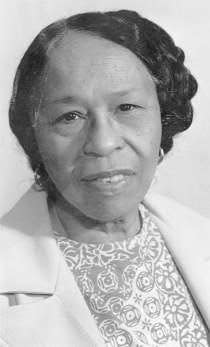Progressive politician spearheaded labor, gay rights during turbulent 1970s Bloomington
Editor's note: In honor of Black History Month, The Herald-Times is publishing Black stories, both current and historical, throughout the month of February. A new installment will be published each weekday.

While you may recognize her last name, Tobiatha Eagleson deserves her own chapter in Bloomington's Black history tome. Throughout the mid-1900s, Eagleson was an early African American civic leader who wasn't afraid to go against the grain in order to stand up for those without a voice.
Eagleson was a longtime employee of Bloomington's Radio Corporation of America (RCA) manufacturing plant until her retirement at the age of 72. During her time there, she played an essential role in unionizing the RCA plant. She eventually became a chief shop steward, a leading union representative.
In her private life, she served on various city boards, including the Redevelopment Commission, the Board of Public Works, the Human Rights Commission and the Community Action Program board. More often than not, she was the only, and sometimes the first, African American serving on these boards.
Bloomington's Banneker Center: A retrospective on the site's complex history
Through her role on the Human Rights Commission, Eagleson was part of the controversial 1977 ruling that upheld a local Dunnkirk bar’s decision to enforce a rule barring same-sex couples from touching while dancing.
In the late 1970s, six men and women were ousted from the Backstreet for dancing "the Bump" with members of the same sex. The Bump was a dance move popularized in the 1970s where two partners, generally one male and one female, bump their hips against each other. When the dancers tried to file discrimination charges, the Human Rights Commission decided they had no grounds because "dancing disco-style with a member of the same sex is not a sure indication about the participants' sexual behavior," according to a 1977 print issue of the Examiner.
Eagleson was the only board member who dissented, pointing out this was a clear case of discrimination against members of the LGBTQ community.
"Eagleson said that the final ruling discriminated against gays and added that the anti-obscenity rule enforced by the Commission unfairly applied to the gays and not to the mixed couples dancing the Bump," according to the Examiner.
Read the entire seriesBlack History Month in Bloomington: what to know, where to go and who to follow
At the time, the Bloomington Gay Alliance protested the decision by requesting all members of the Human Rights Commission, except for Eagleson, resign.
Longtime civic leader Charlotte Zietlow credits Eagleson with being the type of person whose advice other leaders, including herself, would often seek out.
"She was so hardworking and conscientious," Zietlow described in an email to The Herald-Times.
Eagleson died in 2003 at the age of 94, but her memory is kept alive by the many people she inspired and guided throughout her time in Bloomington.
"I love this city," Eagleson said in a past H-T article from 2000. "It made me a good home."
This article originally appeared on The Herald-Times: Black Bloomington leader stood for labor unions, LGBTQ rights
